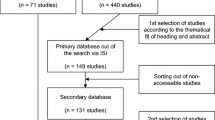Abstract
This paper explores citizens’ views about the welfare of farmed fish and the mental abilities of fish with a large survey data sample from Finland (n = 1,890). Although studies on attitudes towards animal welfare have been increasing, fish welfare has received only limited empirical attention, despite the rapid expansion of aquaculture sector. The results show that the welfare of farmed fish is not any great concern in the Finnish society. The analysis confirms the distinct character given to farmed fish compared to traditional farmed animals. Salmon are rated low in their mental abilities, including the capacity to feel pain, which may weaken ethical concerns for fish welfare. When analyzing the social determinants surrounding the rating of the welfare of farmed fish, it was shown that fish welfare attitudes follow general animal welfare attitudes regarding age and place of residence as fish welfare tends to be rated more negatively among younger age groups and among urban residents. However, no clear connection could be identified between gender and the rating of fish welfare, which may suggest that the distinct cultural categorization of fish diminishes the typical gender difference identified in animal attitudes. It is concluded that in order to improve awareness about fish welfare, there is a need to increase dissemination of scientific knowledge about fish and their welfare. Moreover, further research should be directed toward studying the moral positioning of fish and the distinct moral categorization they receive.
Similar content being viewed by others
References
Arlinghaus, R., Schwab, A., Cooke, S., & Cowx, I. (2009). Contrasting pragmatic and suffering-centred approaches to fish welfare in recreational angling. Journal of Fish Biology, 75(10), 2448–2463.
Ashley, P. (2007). Fish welfare: Current issues in aquaculture. Applied Animal Behaviour Science, 104(3), 199–235.
Baruch, Y. (1999). Response rate in academic studies—a comparative analysis. Human Relations, 52(4), 421–438.
Bergqvist, J., Gunnarsson, S. (2011). Finfish aquaculture: Animal welfare, the environment, and ethical implications. Journal of Agricultural and Environmental Ethics. doi:10.1007/s10806-011-9346-y.
Braithwaite, V., & Boulcott, P. (2007). Pain perception, aversion and fear in fish. Diseases of Aquatic Organisms, 75(2), 131–138.
Bshary, R., Wickler, W., & Fricke, H. (2002). Fish cognition: A primate’s eye view. Animal Cognition, 5(1), 1–13.
Chandroo, K., Duncan, I., & Moccia, R. (2004). Can fish suffer? Perspectives on sentience, pain, fear and stress. Applied Animal Behaviour Science, 86(3), 225–250.
Cottee, S. (2010). Are fish the victims of ‘speciesism’? A discussion about fear, pain and animal consciousness. Fish Physiology and Biochemistry. doi 10.1007/s10695-010-9449-59.
EC European Commission (2007) Attitudes of consumers towards the welfare of farmed animals. http://ec.europa.eu/food/animal/welfare/survey/sp_barometer_fa_en.pdf. Accessed 10 November 2011.
EFSA. (2009). Scientific opinion of the panel on animal health and welfare on a request from European Commission on general approach to fish welfare and to the concept of sentience in fish. The EFSA Journal 954, 1–26.
Evans, J. (2009). The ethics of fish welfare. Journal of Fish Biology, 75(10), 2872–2874.
FAO. (2010). The state of world fisheries and aquaculture. Food and Agriculture Organization of the United Nations, Rome.
FGFRI. (2009). Recreational fishing 2008. Helsinki: Finnish Game and Fisheries Research Institute.
FGFRI. (2010). Finnish fisheries statistics. Helsinki: Finnish Game and Fisheries Research Institute.
Fiddes, N. (1991). Meat: A natural symbol. London: Routledge.
Franklin, A. (1999). Animals and modern cultures: A sociology of human-animal relations in modernity. London: Sage.
Fraser, D. (2008). Understanding animal welfare. Oxford: Wiley-Blackwell.
Frewer, L., Kole, A., Van De Kroon, S., & De Lauwere, C. (2005). Consumer attitudes towards the development of animal-friendly husbandry systems. Journal of Agricultural and Environmental Ethics, 18(4), 345–367.
Grosenick, L., Clement, T. S., & Fernald, R. D. (2007). Fish can infer social rank by observation alone. Nature, 445(7126), 429–432.
Herzog, H. (2007). Gender differences in human–animal interactions: A review. Anthrozoös, 20(1), 7–21.
Herzog, H., & Galvin, S. (1997). Common sense and the mental lives of animals: An empirical approach. In R. Mitchell, N. Thompson, & N. L. Miles (Eds.), Anthropomorhism, anecdotes, and animals (pp. 237–253). Albany: State University of New York Press.
Honkanen, P., & Olssen, S. (2009). Environmental and animal welfare issues in food choice. The case of farmed fish. British Food Journal, 111(3), 293–309.
Huntingford, F., Adams, C., Braithwaite, V., Kadri, S., Pottinger, T., Sandoe, P., et al. (2006). Current issues in fish welfare. Journal of Fish Biology, 68(2), 332–372.
Huntingford, F., & Kadri, S. (2009). Taking account of fish welfare: Lessons from aquaculture. Journal of Fish Biology, 75(10), 2862–2867.
Kendall, H., Lobao, L., & Sharp, J. (2006). Public concern with animal well-being: Place, social structural location, and individual experience. Rural Sociology, 71(3), 399–428.
Kjaernes, U. (2011). Ethics and action: A relational perspective on consumer choice in the European politics of food. Journal of Agricultural and Environmental Ethics. doi 10.1007/s10806-011-9315-5.
Knight, S., & Barnett, L. (2008). Justifying attitudes toward animal use: A qualitative study of people’s views and beliefs. Anthrozoös, 21(1), 31–42.
Knight, S., Vrij, A., Bard, K. & Brandon, D. (2009). Science versus human welfare? Understanding attitudes toward animal use. Journal of Social Issues 65(3), 463–483.
Lauenstein, V., & Olie, F. (2010). Fish welfare in aquaculture—slipping off the agenda? In H. Lelieveldt (Ed.), What’s on the Menu? A comparative analysis of the agenda-setting dynamics of sustainable meat, fish in four European countries (pp. 85–104). Middelburg: Roosevelt Academy.
María, G. A. (2006). Public perception of farm animal welfare in Spain. Livestock Science, 103(3), 250–256.
Martelli, G. (2009). Consumers’ perception of farm animal welfare: An Italian and European Perspective. Italian Journal of Animal Science, 8, 31–41.
Miele, M., Veissier, I., Evans, A., & Botreau, R. (2011). Animal welfare: Establishing a dialogue between science and society. Animal Welfare, 20(1), 103–117.
Miura, A., Bradshawtt, J., & Tanidat, H. (2002). Childhood experiences and attitudes towards animal issues: A comparison of young adults in Japan and the UK. Animal Welfare, 11(4), 437–448.
Olesen, I., Ingeborg Myhr, A., & Rosendal, G. K. (2011). Sustainable aquaculture: Are we getting there? Ethical perspectives on salmon farming. Journal of Agricultural and Environmental Ethics, 24(4), 381–408.
Paul, E., & Serpell, J. (1993). Childhood pet keeping and humane attitudes in young adulthood. Animal Welfare, 2(4), 321–337.
Philo, C. (1995). Animals, geography and the city: Notes on inclusions and exclusions. Environment and Planning D, 13(6), 655–681.
Salmi, P., & Ratamäki, O. (2011). Fishing culture, animal policy, and new governance: A case study of voluntary catch-and-release fishing in Finland. In T. Beard, R. Arlinghaus, & S. G. Sutton (Eds.), The angler in the environment social, economic, biological, and ethical dimensions (pp. 235–249). Maryland: American Fisheries Society.
Schlag, A. (2010). Aquaculture: An emerging issue for public concern. Journal of Risk Research, 13(7), 829–844.
Schreck, C. B. (2010). Stress and fish reproduction: The roles of allostasis and hormesis. General and Comparative Endocrinology, 165(3), 549–556.
Sneddon, L. (2003). The evidence for pain in fish: The use of morphine as an analgesic. Applied Animal Behaviour Science, 83(2), 153–162.
Sneddon, L. (2009). Pain perception in fish: Indicators and endpoints. ILAR Journal, 50(4), 338–342.
Solgaard, H., & Yang, Y. (2011). Consumers’ perception of farmed fish and willingness to pay for fish welfare. British Food Journal, 113(8), 997–1010.
Thomas, K. (1983). Man and the natural world: Changing attitudes in England (pp. 1500–1800). London: Penguin.
Vanhonacker, F., Altintzoglou, T., Luten, J., & Verbeke, W. (2011). Does fish origin matter to European consumers? Insights from a consumer survey in Belgium, Norway and Spain. British Food Journal, 113(4), 535–549.
Vanhonacker, F., Verbeke, W., van Poucke, E., & Tuyttens, F. (2007). Segmentation based on consumers’ perceived importance and attitude toward farm animal welfare. International Journal of Sociology of Food and Agriculture, 15(3), 91–107.
Verbeke, W., Sioen, I., Brunsø, K., Van Camp, J., & De Henauw, S. (2007a). Consumer perception versus scientific evidence of farmed versus wild fish: Exploratory insights from Belgium. Aquaculture International, 15(2), 121–136.
Verbeke, W., Vanhonacker, F., Sioen, I., Van Camp, J., & De Henauw, S. (2007b). Perceived importance of sustainability and ethics related to fish: A consumer behavior perspective. Ambio, 36(7), 580–585.
Vialles, N. (1987/1994). Animal to edible. Cambridge: Cambridge University Press. (Original French publication 1987).
Volpato, G. (2009). Challenges in assessing fish welfare. ILAR Journal, 50(4), 329–337.
Wells, D., & Hepper, G. (1997). Pet ownership and adults’ views on the use of animals. Society & Animals, 5, 45–63.
Acknowledgments
We would like to thank two referees for their helpful comments and suggestions. We also want to thank the Academy of Finland for their financial support for the project Politicised Animals—the Consumer and Farm Animals (128122), which enabled us to gather the material for this research.
Author information
Authors and Affiliations
Corresponding author
Rights and permissions
About this article
Cite this article
Kupsala, S., Jokinen, P. & Vinnari, M. Who Cares about Farmed Fish? Citizen Perceptions of the Welfare and the Mental Abilities of Fish. J Agric Environ Ethics 26, 119–135 (2013). https://doi.org/10.1007/s10806-011-9369-4
Accepted:
Published:
Issue Date:
DOI: https://doi.org/10.1007/s10806-011-9369-4




